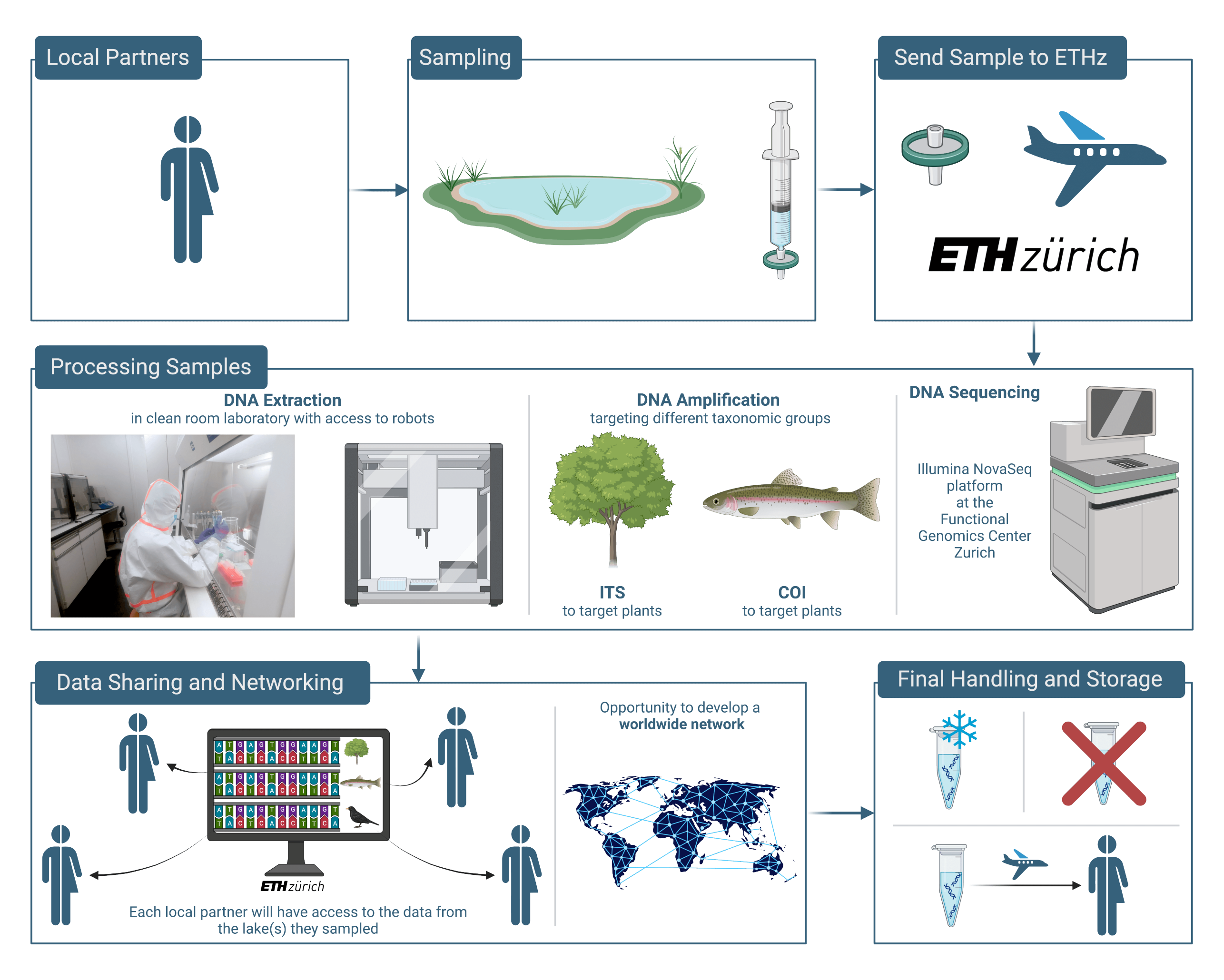Lake sampling workflow
LeDNA is based upon a collaborative approach, with local partners carrying out the eDNA sampling at the selected lakes (see the LeDNA workflow figure). Our pursuit of building a globally representative dataset with robust environmental replication led to the selection of lakes based on environmental characteristics and terrestrial biomes, with a focus on lakes below 1500 m in altitude.
A sampling kit, which comprises all material needed for sampling eDNA from one lake, will be sent to each local partner. Training materials will be provided, including a step-by-step sampling protocol with photos and a video explaining how to assemble the filtration system and the eDNA sampling process. Subsequently, samples are sent to ETH for processing, covering DNA extraction, sequencing, and data analysis.

At ETHZ, our eDNA laboratory is specially equipped, with a clean room laboratory fitted with air filters and over pressurization to prevent external contaminants.
We conduct the various steps of a typical eDNA analysis in separate rooms to eliminate impurities to the greatest extent possible. Here, our team will process the environmental samples by extracting the genetic material within them and processing it under sterile conditions so that it can be amplified. By having all samples processing centralized in our lab, we will guarantee consistent, high-throughput procedures utilizing advanced robotics (e.g., Opentrons OT-2, Brand Pipetting Robot) for all samples under the same conditions.
What will you commit to?
We expect from collaborators:
- Commitment to carry out sampling on May 22nd, 2024, or within 2 weeks around this date
- Commitment to execute sampling following our sampling protocol
- Commitment to receive and send samples and sampling equipment from ETH Zurich
- Commitment to engage in a Nagoya Protocol compliant contract for the collaboration
What you can expect from participating:
- Learn how to sample eDNA
- Be a part of a worldwide network to share knowledge and results
- Opportunity to become an author on a scientific publication
- Data provided openly following FAIR practices
- Learn about what plants and animals live in your local lakes and watersheds
- Help test a global effort to monitor life on Earth
What will it cost?
LeDNA is fully funded by the European Research Council (ERC) and covers the following expenses for our collaborators:
- Sampling equipment
- Shipping and return of sampling equipment to ETH Zurich
- All lab processing and sequencing of samples
- Support for permitting and their costs as needed
- Data analysis
- Assistance with costs to do field work for countries on the Download list of developing countries (PDF, 204 KB) eligible for official development assistance
Contact